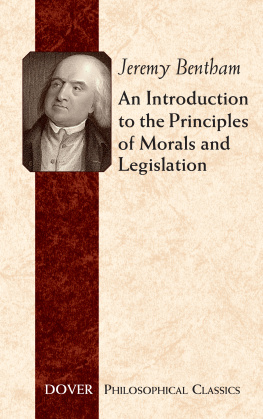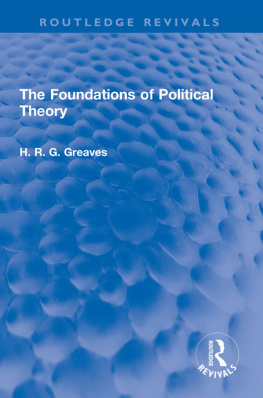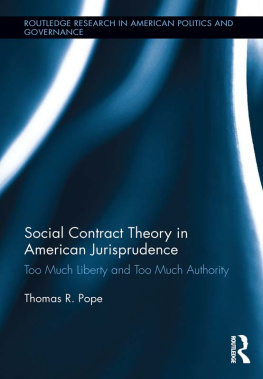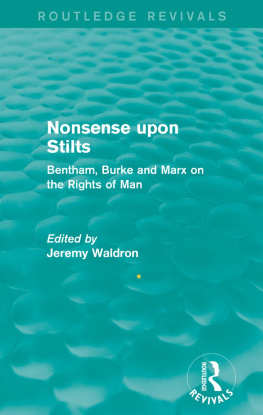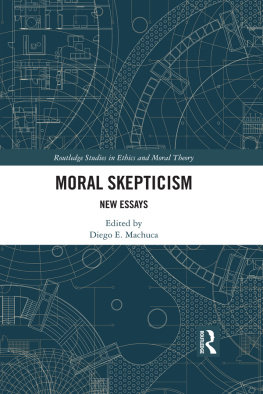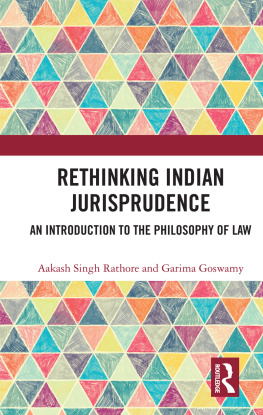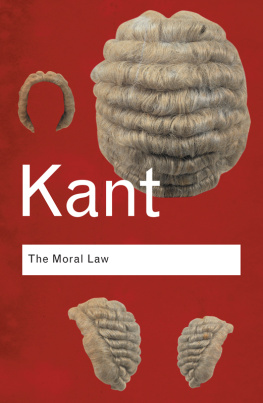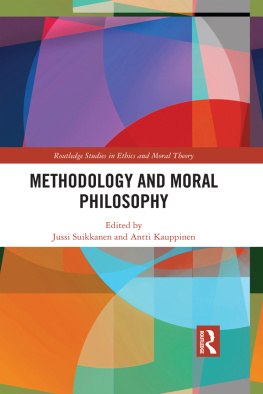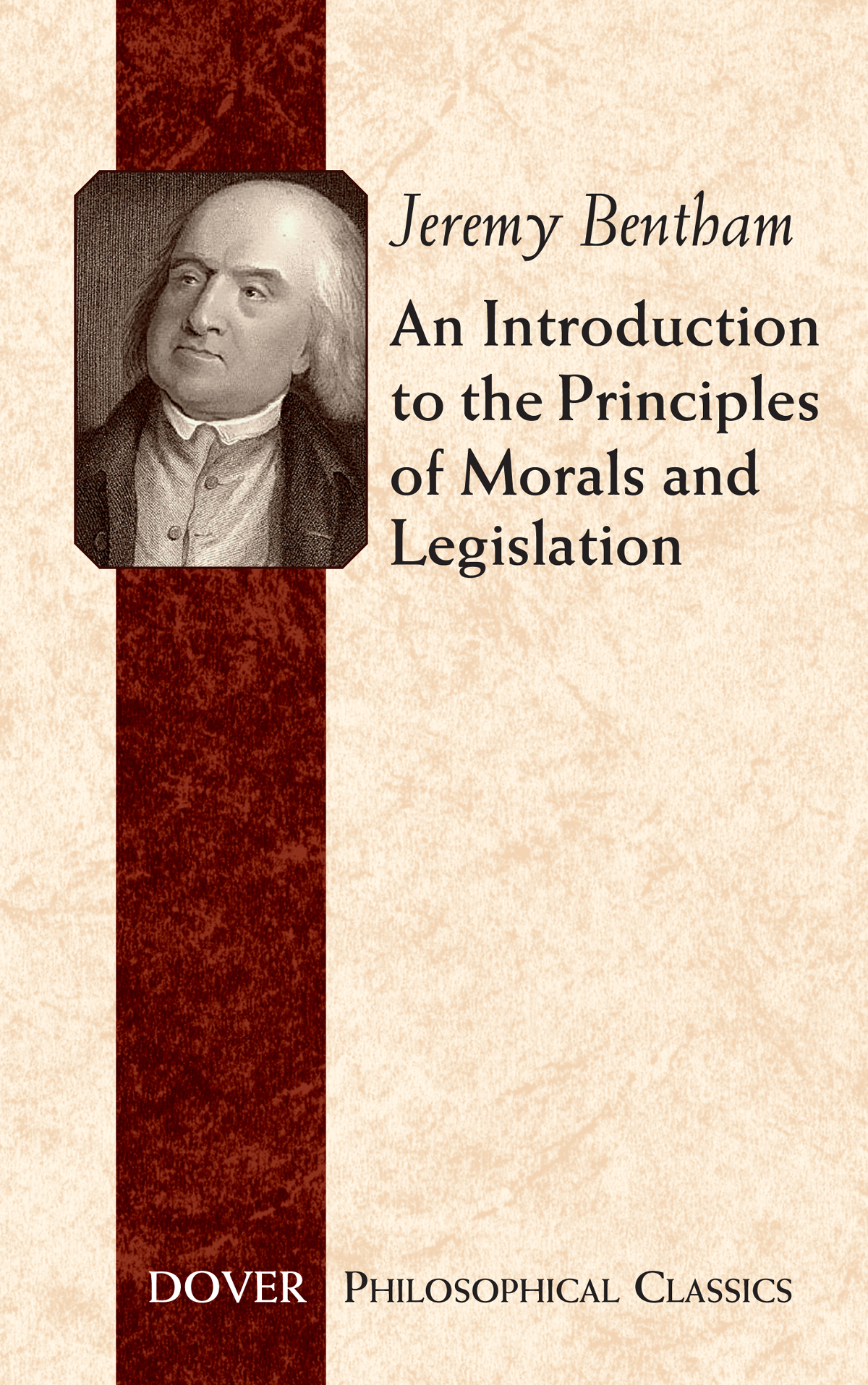CHAPTER I.
OF THE PRINCIPLE OF UTILITY.
I. NATURE has placed mankind under the governance of two sovereign masters, pain and pleasure. It is for them alone to point out what we ought to do, as well as to determine what we shall do. On the one hand the standard of right and wrong, on the other the chain of causes and effects, are fastened to their throne. They govern us in all we do, in all we say, in all we think: every effort we can make to throw off our subjection, will serve but to demonstrate and confirm it. In words a man may pretend to abjure their empire: but in reality he will remain subject to it all the while. The principle of utility recognises this subjection, and assumes it for the foundation of that system, the object of which is to rear the fabric of felicity by the hands of reason and of law. Systems which attempt to question it, deal in sounds instead of sense, in caprice instead of reason, in darkness instead of light.
But enough of metaphor and declamation : it is not by such means that moral science is to be improved.
II. The principle of utility is the foundation of the presen work: it will be proper therefore at the outset to give an explicit and determinate account of what is meant by it. By the principle of utility is meant that principle which approves or disapproves of every action whatsoever, according to the tendency which it appears to have to augment or diminish the happiness of the party whose interest is in question: or, what is the same thing in other words, to promote or to oppose that happiness. I say of every action whatsoever ; and therefore not only of every action of a private individual, but of every measure of government.
III. By utility is meant that property in any object, whereby it tends to produce benefit, advantage, pleasure, good, or happiness, (all this in the present case comes to the same thing) or (what comes again to the same thing) to prevent the happening of mischief, pain, evil, or unhappiness to the party whose interest is considered: if that party be the community in general, then the happiness of the community: if a particular individual, then the happiness of that individual.
IV. The interest of the community is one of the most general expressions that can occur in the phraseology of morals: no wonder that the meaning of it is often lost. When it has a meaning, it is this. The community is a fictitious body, composed of the individual persons who are considered as constituting as it were its members. The interest of the community then is, what ? the sum of the interests of the several members who compose it.
V. It is in vain to talk of the interest of the community, without understanding what is the interest of the individual . A thing is said to promote the interest, or to be for the interest, of an individual, when it tends to add to the sum total of his pleasures: or, what comes to the same thing, to diminish the sum total of his pains.
VI. An action then may be said to be conformable to the principle of utility, or, for shortness sake, to utility, (meaning with respect to the community at large) when the tendency it has to augment the happiness of the community is greater than any it has to diminish it.
VII. A measure of government (which is but a particular kind of action, performed by a particular person or persons) may be said to be conformable to or dictated by the principle of utility, when in like manner the tendency which it has to augment the happiness of the community is greater than any which it has to diminish it.
VIII. When an action, or in particular a measure of government, is supposed by a man to be conformable to the principle of utility, it may be convenient, for the purposes of discourse, to imagine a kind of law or dictate, called a law or dictate of utility: and to speak of the action in question, as being conformable to such law or dictate.
IX. A man may be said to be a partizan of the principle of utility, when the approbation or disapprobation he annexes to any action, orto anymeasure, is determined by and proportioned to the tendency which he conceives it to have to augment or to diminish the happiness of the community: or in other words, to its conformity or unconformity to the laws or dictates of utility.
X. Of an action that is conformable to the principle of utility one may always say either that it is one that ought to be done, or at least that it is not one that ought not to be done. One may say also, that it is right it should be done; at least that it is not wrong it should be done: that it is a right action; at least that it is not a wrong action. When thus interpreted, the words ought, and right and wrong, and others of that stamp, have a meaning: when otherwise, they have none.
XI. Has the rectitude of this principle been ever formally contested? It should seem that it had, by those who have not known what they have been meaning. Is it susceptible of any direct proof ? it should seem not: for that which is used to prove every thing else, cannot itself be proved: a chain of proofs must have their commencement somewhere. To give such proof is as impossible as it is needless.
XII. Not that there is or ever has been that human creature breathing, however stupid or perverse, who has not on many, perhaps on most occasions of his life, deferred to it. By the natural constitution of the human frame, on most occasions of their lives men in general embrace this principle, without thinking of it: if not for the ordering of their own actions, yet for the trying of their own actions, as well as of those of other men. There have been, at the same time, not many, perhaps, even of the most intelligent, who have been disposed to embrace it purely and without reserve. There are even few who have not taken some occasion or other to quarrel with it, either on account of their not understanding always how to apply it, or on account of some prejudice or other which they were afraid to examine into, or could not bear to part with. For such is the stuff that man is made of: in principle and in practice, in a right track and in a wrong one, the rarest of all human qualities is consistency.
XIII. When a man attempts to combat the principle of utility, it is with reasons drawn, without his being aware of it, from that very principle itself . His arguments, if they prove any thing, prove not that the principle is wrong, but that, according to the applications he supposes to be made of it, it is misapplied . Is it possible for a man to move the earth? Yes ; but he must first find out another earth to stand upon.
XIV. To disprove the propriety of it by arguments is impossible; but, from the causes that have been mentioned, or from some confused or partial view of it, a man may happen to be disposed not to relish it. Where this is the case, if he thinks the settling of his opinions on such a subject worth the trouble, let him take the following steps, and at length, perhaps, he may come to reconcile himself to it.
1. Let him settle with himself, whether he would wish to discard this principle altogether; if so, let him consider what it is that all his reasonings (in matters of politics especially) can amount to ?
2. If he would, let him settle with himself, whether he would judge and act without any principle, or whether there is any other he would judge and act by ?
3. If there be, let him examine and satisfy himself whether the principle he thinks he has found is really any separate intelligible principle; or whether it be not a mere principle in words, a kind of phrase, which at bottom expresses neither more nor less than the mere averment of his own unfounded sentiments; that is, what in another person he might be apt to call caprice ?

